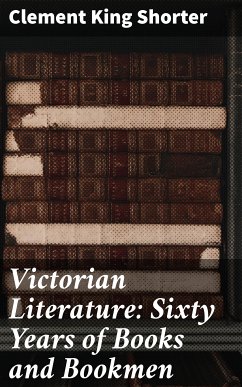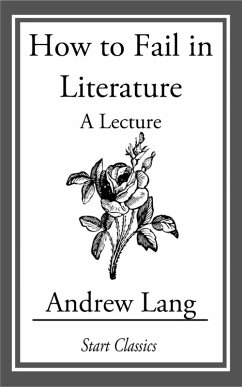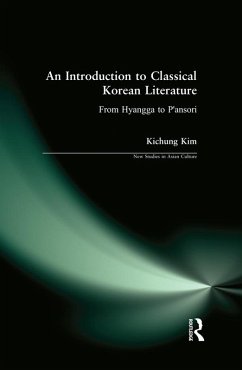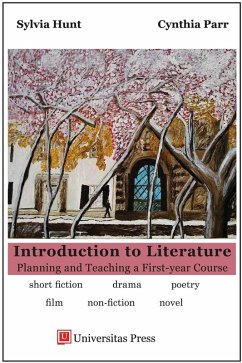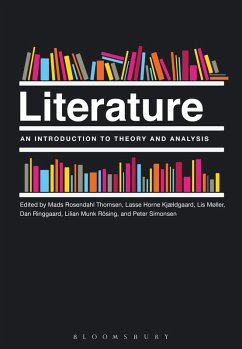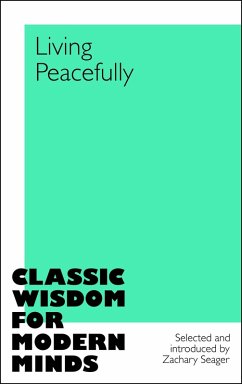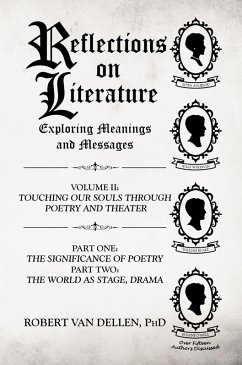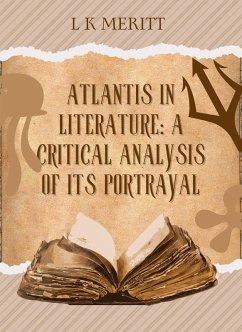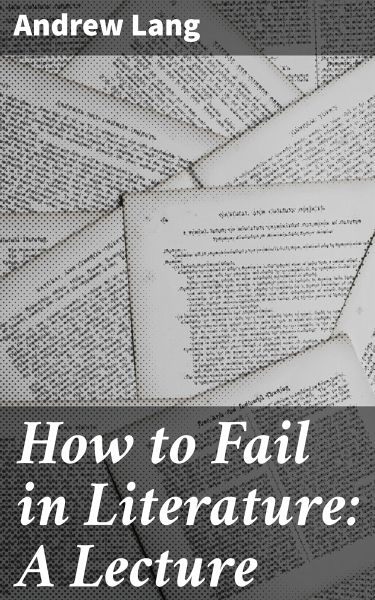
How to Fail in Literature: A Lecture (eBook, ePUB)
Navigating Literary Pitfalls: A Humorous Lecture on Writing Challenges

PAYBACK Punkte
0 °P sammeln!
In "How to Fail in Literature: A Lecture," Andrew Lang presents a thought-provoking examination of literary endeavors, framed around the pitfalls and absurdities that often confront writers. Through a distinctive blend of wit, irony, and rhetorical flourish, Lang deftly articulates his thesis, offering insights into the nature of failure and the artistic process. The lecture, initially delivered to an audience of aspiring authors, is steeped in the literary context of the late 19th century, a time when traditional literary norms were increasingly challenged by burgeoning avant-garde movements....
In "How to Fail in Literature: A Lecture," Andrew Lang presents a thought-provoking examination of literary endeavors, framed around the pitfalls and absurdities that often confront writers. Through a distinctive blend of wit, irony, and rhetorical flourish, Lang deftly articulates his thesis, offering insights into the nature of failure and the artistic process. The lecture, initially delivered to an audience of aspiring authors, is steeped in the literary context of the late 19th century, a time when traditional literary norms were increasingly challenged by burgeoning avant-garde movements. His keen observations are punctuated by anecdotes and examples, painting a vivid picture of the struggles that accompany the pursuit of literary acclaim. Andrew Lang, a celebrated Scottish poet, novelist, and literary critic, was deeply immersed in the literary world, contributing to various genres and formats. His extensive knowledge of folklore and mythology, coupled with an unyielding passion for literature, informed his perspective on what constitutes literary success and failure. Lang's sharp critique of literary pretensions reflects his own experiences as a writer, revealing the obstacles that even the most talented individuals navigate in their creative journeys. This lecture is an essential read for anyone involved in the literary arts, from budding writers to seasoned authors. Lang's humorous and insightful dissection of failure encourages readers to embrace their own missteps as integral parts of the creative process. With its timeless wisdom, "How to Fail in Literature" is not just a cautionary tale; it is an invitation to explore the beautifully chaotic world of writing.
Dieser Download kann aus rechtlichen Gründen nur mit Rechnungsadresse in A, B, BG, CY, CZ, D, DK, EW, E, FIN, F, GR, H, IRL, I, LT, L, LR, M, NL, PL, P, R, S, SLO, SK ausgeliefert werden.





